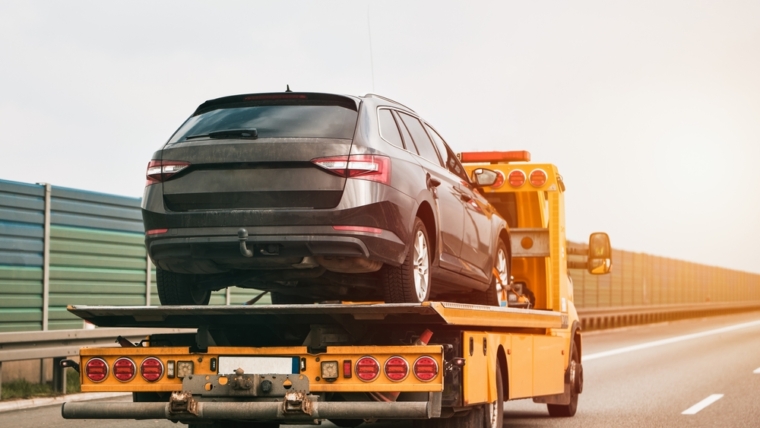When shopping for a new car, your credit score plays a crucial role in determining your financing options. If your credit isn’t in the best shape, the car-buying process can feel a little more overwhelming. However, having a lower credit score doesn’t mean you’re out of options. With the right approach—such as researching lenders, exploring different financing opportunities, and considering a larger down payment—you can still secure a reasonable deal on a vehicle. Taking the time to understand your credit standing and prepare in advance can help you navigate the process with confidence.
What Lenders Look For
Before you can talk about the credit score you need to buy a car, it’s important to know what lenders are looking for. In your application for a car loan, lenders don’t only want to know your credit score. They’ll often look at your credit score in combination with your income, your debt-to-income ratio, time on job, and length of residency at one address. If your credit score isn’t very strong, lenders will look for other areas of stability to get you approved.
Your credit score is usually used as a starting point for lenders. Of course, those with higher scores have higher approval odds, but again, this is not the only factor. Your credit score can also impact the interest rate you receive, but we’ll talk more about that in a moment.
The other factors to keep in mind are your debt-to-income ratio. As the name suggests, this data point compares your income to the amount of debt you currently have. Lenders will look at this ratio to see if you can truly afford to add another payment to your monthly load. Additionally banks like stability. If you’ve been at the same job or address for several years it will greatly increase your odds for approval. You might have had issues with payments in the past, but the fact that you can hold a job for several years goes a long way with many lenders.
How Your Score Can Impact Your Payments
When considering an auto loan, it’s important to understand how your credit score can affect the interest rates offered by lenders. According to Experian, as of the third quarter of 2024, the average interest rate for new car loans was 6.84%, while used car loans averaged 12.01%. However, these rates vary significantly based on credit scores. For instance, borrowers with excellent credit scores (781-850) secured average rates of 5.25% for new cars, whereas those with poor credit scores (300-500) faced rates averaging 24-29%. This disparity underscores the importance of maintaining a healthy credit score to minimize borrowing costs.
If your credit score is less than ideal, there are steps you can take to improve your chances of securing a favorable auto loan. Start by reviewing your credit report for any inaccuracies and addressing them promptly. Paying down existing debts can also improve your debt-to-income ratio, making you more attractive to lenders. Additionally, consider saving for a larger down payment, as this can reduce the loan amount needed and may help in negotiating better terms. Exploring financing options through credit unions or lenders specializing in subprime loans can also be beneficial. Remember, even small improvements in your credit profile can lead to more favorable loan conditions.
Keep in mind that interest rates can fluctuate no matter what your credit score is. Interest rates are determined by the conditions of the market as well as what, and where you borrow. It’s not a bad idea to shop around to see where you can get the lowest interest rate. If you’re not in a big hurry to buy a car, you can also wait for a couple of months to see how the market changes. You must also bear in mind that the type of vehicle you are purchasing will have a huge impact on your interest rate as well. The newer and lower mileage the vehicle has, the better rate you will get. Banks take heavy consideration into vehicle you are attempting to finance when determining the rate to give your loan.
What is a Good Credit Score Range to Buy a Car?
You may have heard that you need a good credit score in order to buy a car, but that’s not entirely true. There is no universal minimum credit score needed to secure an auto loan since each lender sets its own requirements. While a higher credit score typically qualifies you for better interest rates and loan terms, individuals with lower scores—sometimes as low as 450—can still find financing options.
If your credit falls into this range, you’ll likely be classified as a subprime borrower, meaning lenders may offer loans with higher interest rates to offset the perceived risk. However, having a solid down payment, a steady income, and a history of on-time payments can improve your chances of approval. Many lenders specialize in working with subprime borrowers, so with a bit of research and preparation, you can still find a financing option that works for you.
How to Afford a Car with Bad Credit
So, if you have bad credit and you really need a car, how can you make it happen? The first thing to consider is your down payment. Down payment is one of the most important factors in your approval, as it shows the bank how invested you are in the loan. Banks typically want to see 15%-20% of the sales price with a subprime credit score. If you can afford more, even better as you can then negotiate better terms with the lender.
If you are not able to come up with a strong down payment and are in dire need of a vehicle, you may benefit from having a cosigner. If you have someone in your life with good credit, see if they’re willing to cosign your loan application. Having this person vouch for you and sign along with you can reflect positively on your overall application, potentially leading to lower interest rates and better approval odds.
Finally, opt for a used car if at all possible. The vast majority of used cars are incredibly reliable, and they also tend to be much less expensive than new cars. Even if you do have to pay a higher interest rate, you will still find yourself saving lots of money compared to purchasing a brand-new vehicle.
Work with FA Financing
When you’re trying to get a car loan with bad credit, it can also help to work with a lender specializing in subprime auto lending. FA Financing has more than 20 years of experience helping those with bad credit in San Diego County get approved for the auto loans they need. We know how to highlight your strengths and present your application in the best possible light to get you approved. We’re happy to work with those with low credit scores as well as buyers in other circumstances such as multiple repossessions or a recent bankruptcy. Getting an auto loan with a bad credit score can seem stressful, but it doesn’t have to be. Contact FA Financing today to see how we can help you.
Editor’s Note: This post was originally published in February 2022 and has been updated for comprehensiveness.


